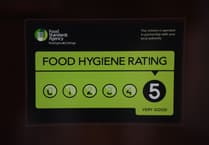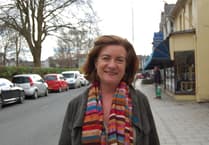A Labour politician has called on Carmarthenshire County Council to be clearer about its housing policy for asylum seekers after saying he’d frequently heard “myths” during the general election campaign that they were automatically put to the top of the housing waiting list.
The Labour member for Hengoed, Llanelli Cllr Martyn Palfreman was speaking at a council scrutiny meeting where he and colleagues discussed the results of a public consultation about a proposed new social housing allocation policy.
One respondent said the council should provide UK Government website links relating to people subject to immigration control who were eligible for social housing because the rules seemed to change quite frequently.
Cllr Palfreman said: “Certain people within the community are probably giving them intentionally wrong facts on such matters.”
“I took every opportunity I had to refute that as inaccurate but I think there is an opportunity for the council to make that position a lot clearer.”
Cabinet member for housing, Cllr Linda Evans, said she agreed with Cllr Palfreman. “Very often people come to a conclusion without having the facts,” she remarked.
A council spokesman confirmed asylum seekers were not put at the top of the housing list ahead of local people.
Carmarthenshire, like many areas, faces a huge demand for council and housing association properties and has around 4,000 people on its housing register, who are categorised in four bands.
The categories are:
• Band A - including people who are homeless, threatened with being homeless, victims of domestic abuse, or who need to move due to high risk or life-threatening medical/welfare grounds
• Band B - including people who need to move as their medical/welfare condition will not improve, people “under-occupying” properties and who want to move to a smaller one, and those living in insanitary or overcrowded homes
• Band C - people who have no housing need based on the information they submitted
• No preference group - including people who have the means to meet their housing costs, people who have been guilty of unacceptable behaviour serious enough to make them unsuitable as a council tenant, and people who do not have a local connection to Carmarthenshire although there are some exemptions.
Council chiefs approved an emergency allocation policy in February last year, which included changes to those considered to be in urgent housing need and prioritising allocations to those with a connection to a particular area of the county.
The council is now looking to change its social housing allocation policy, and it received 367 responses to its consultation.
The results showed strong agreement that the highest preference should be given to people who are homeless, that no preference should be given to people who have committed unacceptable behaviour or have large rent arrears, and that priority should be given to those who live in or have a local connection to Carmarthenshire.
Three-quarters of respondents reckoned the banding groups were right, but the council will add young people who would be homeless on leaving the care system into Band A.
There was less agreement on questions such as whether people who had the means to meeting their housing costs should not have preference. In response the council will clearly define and demonstrate what “the means to meet housing costs” actually meant and carry out assessments accordingly.
Another person asked why people aged over 55 always got the bungalows, while another thought it was unfair that having a dog disadvantaged them. “My dog is well-trained flea’d and wormed all the time and I need her for my anxiety and depression,” they said.
Council chiefs will finalise a new-look social housing allocation policy with a view to it going before cabinet in November and then going live early next year.
After discussing the consultation, members of the communities, homes and regeneration scrutiny committee went on to hear that the number of empty council properties in Carmarthenshire had fallen from a peak of 431 two years ago to 178 in March this year.
The council has 9,350 houses, bungalows and flats and there are always empty ones at any given time, some of which need a lot of work before they’re rented out again.
The Plaid-Independent administration set up a team to tackle the large number of empty council homes in 2022 and Cllr Evans said she hoped the number would fall further to around 150-160. Getting more of them occupied brings more rent for the council as well as providing a roof over people’s heads.
Committees members welcomed the improvement. Chairman, Cllr Rob Evans, said empty homes in Danybanc, Llanelli, were being rented out again. “I’m very encouraged by what’s going on,” he said.
The general election in Llanelli was won by Labour’s Nia Griffith with 12,751 votes, followed closely by Reform UK’s Richard Beer (11,247 votes).
Rhodri Davies of Plaid Cymru, came third with 9,511 votes.





Comments
This article has no comments yet. Be the first to leave a comment.